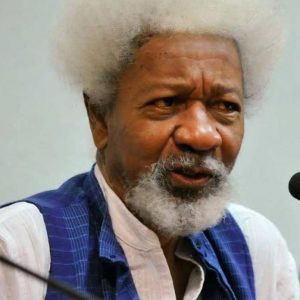We live in an age where silence has become uncomfortable.
The second things get quiet, whether you’re waiting in line, sitting at a café alone, or lying in bed before sleep, most people instinctively grab their phones. Not because they need to, but because it feels strange not to.
It’s easy to see why. Our devices give us instant stimulation: dopamine hits, distractions, something to fill the void. But here’s the interesting part: being comfortable with silence is a skill, and not many people have it anymore.

Psychology shows that people who can enjoy silence without distraction tend to have some rare internal strengths, qualities that promote peace, focus, and emotional resilience in a noisy world.
Let’s dive into what those strengths are, and why they matter more than ever.
1. You have high self-awareness
Most people avoid silence because they’re avoiding themselves.
When the noise fades, your thoughts get louder. You start to notice your inner dialogue, your anxieties, and your mental clutter. And that can be uncomfortable.
But if you can sit with silence without instantly reaching for your phone, it means you’re not afraid to hear your own mind speak. You can observe your thoughts without needing to drown them out.
That’s self-awareness, the foundation of emotional intelligence. It’s the ability to see what’s happening inside your mind without judgment.
I first learned this while studying psychology. Many people think self-awareness is about analyzing yourself endlessly. But in reality, it’s about witnessing, watching your thoughts come and go without identifying with them.
People with high self-awareness are usually better decision-makers, better communicators, and more grounded under pressure. They understand their triggers and motives, so they don’t get lost in emotional reactions.
Silence is their mirror. It reflects back who they really are.
2. You have emotional regulation skills
Let’s be honest: silence can feel awkward. Especially around other people.
You’ve probably noticed how quickly someone will fill a quiet pause in conversation by checking their phone, cracking a joke, or changing the subject. It’s not that they’re impolite; it’s just that stillness can feel like exposure.
But if you’re comfortable in that space, it says something powerful about your emotional regulation.
You don’t need external noise to soothe internal discomfort. You can feel unease, boredom, or awkwardness and stay centered anyway.
I remember attending my first silent meditation retreat years ago. The first few hours were torture. No music, no small talk, just the sound of my own thoughts bouncing around my head.
But after a while, something shifted. My thoughts were still there, but they didn’t control me. I could watch them pass by like clouds.
That’s what psychologists call emotional regulation, the ability to experience emotion without being consumed by it. It’s one of the strongest predictors of happiness and resilience.
So if you can sit in silence without needing to escape it, you’re showing emotional maturity most people spend years trying to cultivate.
3. You think deeply and critically
We live in an era of shallow thinking.
Scrolling through short videos, reading headlines instead of articles, reacting before reflecting, that’s the default mode of modern life.
And it’s not that people are less intelligent; it’s just that we rarely give ourselves space to think anymore.
Silence changes that.
When you give your mind stillness, it starts to process, connect, and create.
Psychologists call this the default mode network, a part of the brain that activates when we’re not focused on anything specific. It’s when insight and creativity often arise.
Some of the world’s best thinkers and creators have known this for centuries.
Nietzsche once said, “Silence is worse; all truths that are kept silent become poisonous.” He meant that silence, though uncomfortable, forces the truth to surface.
When you can sit quietly without needing to fill the gap, it’s a sign of intellectual independence. You’re not afraid of your own mind. You trust it to wander, reflect, and reach conclusions without external noise guiding it.
Personally, I’ve noticed my best writing ideas come when I’m not trying to think, when I’m walking without headphones, cooking in silence, or staring out the window. That’s when clarity emerges.
So if you can enjoy quiet without distraction, it’s not just peace you’re cultivating. It’s wisdom.
4. You have a strong sense of independence
Here’s a simple truth: most people are scared of being alone.
We’re social creatures, and that’s not inherently bad. But there’s a difference between enjoying connection and depending on it to feel whole.
If you can sit in silence and feel content, you’ve tapped into a rare form of independence, the kind that comes from within.
You’re not constantly reaching for validation, entertainment, or attention. You’re okay being with yourself. And that’s a huge psychological strength.
In Eastern philosophy, there’s a concept called inner refuge, the ability to find peace inside yourself rather than seeking it externally.
It’s something Buddhist teachers often talk about: when you stop grasping for outer stability, you find inner freedom.
That doesn’t mean you become detached or cold. It just means your happiness isn’t fragile. It doesn’t depend on whether someone texts you back or how many likes you get.
If you can enjoy silence, you’ve learned to enjoy your own company. And that’s the foundation of true independence.
5. You’re mindful and present
Silence invites awareness.
When the noise fades, you start to notice the little things, the subtle hum of your environment, your breath, the way your body feels sitting where you are. That’s the beginning of mindfulness.
Mindfulness isn’t about sitting cross-legged on a mountaintop. It’s about paying attention to the present moment without judgment.
If you can sit in stillness without reaching for your phone, you’re practicing mindfulness, even if you don’t label it that way.
The truth is, our devices have trained us to live everywhere except here. We’re always anticipating the next thing, messages, updates, alerts. But when you can just be in silence, you’re reclaiming your mind’s natural rhythm.
I’ve talked about this before, but mindfulness has been shown in countless studies to reduce anxiety, improve focus, and boost emotional well-being.
The simple act of being comfortable in stillness, without stimulation, is proof that your awareness is awake and alive.
In a distracted world, presence is a rare form of rebellion.
6. You have high tolerance for boredom
Let’s be real. Boredom gets a bad rap.
We’re taught to fear it. To fill every pause with something productive or entertaining. But boredom is actually one of the most powerful states for growth.
When you allow yourself to feel bored, you’re training your brain to sit in stillness without stimulation. That’s huge for focus, discipline, and creativity.
Psychologists call this low novelty-seeking behavior, the ability to stay engaged with something even when it’s not thrilling.
People who develop it tend to be more successful long-term, because they can stick with difficult tasks without constantly seeking excitement.
And here’s the irony: when you stop fighting boredom, your brain starts to create.
Studies show that daydreaming or spacing out often leads to bursts of creativity. It’s like your mind gets bored enough to invent its own entertainment.
So if you can sit quietly without needing to check your phone every few seconds, you’re not lazy. You’re building mental endurance. You’re rewiring your attention span for focus in a world that’s constantly trying to steal it.
7. You have spiritual depth
This one’s harder to define, but you can feel it.
People who are comfortable with silence often have a deeper connection to something beyond themselves. You could call it spirituality, consciousness, or simply awareness.
In Buddhism, silence is seen as a teacher. It reveals the nature of the mind. When you stop filling every moment with sound and distraction, you start noticing the quiet space underneath it all, the one that’s always been there.
For me, this realization came during long runs. Somewhere between the rhythmic sound of my feet and my breath, everything else falls away.
What’s left is a sense of peace that doesn’t come from achieving or doing, it comes from being.
That’s what spiritual depth really is: finding peace not in the noise, but in the stillness between the notes.
And while not everyone would describe it as spiritual, the truth is that comfort with silence points to something profound, a grounded sense of existence, a knowing that you’re enough even when nothing’s happening.
Final words
In a world obsessed with speed, silence can feel radical.
If you can sit quietly without reaching for your phone, you’re not just resisting distraction, you’re mastering your mind.
You’re showing self-awareness, emotional balance, deep thinking, independence, mindfulness, patience, and spiritual maturity. Seven strengths that, together, create a kind of peace most people spend their whole lives chasing.
Silence isn’t emptiness. It’s space. Space for clarity, creativity, and self-connection.
So the next time you find yourself in a quiet moment, don’t rush to fill it. Let it stretch. Let it breathe.
Because in those moments when the world goes silent, you finally get to hear the one voice that matters most, your own.
Credit: www.experteditor.com.au
Stay ahead with the latest updates!
Join The Podium Media on WhatsApp for real-time news alerts, breaking stories, and exclusive content delivered straight to your phone. Don’t miss a headline — subscribe now!
Chat with Us on WhatsApp








